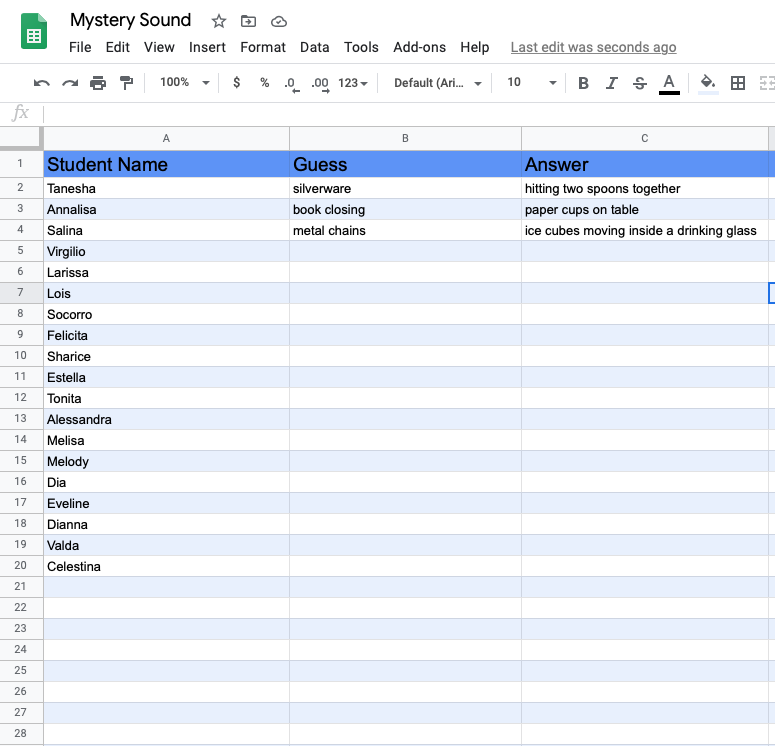Unbeknownst to my nephews, they get a quick and easy lesson on timbre every time they come to visit us. We listen to a podcast called Brains On. Partway through the show they play a “mystery sound”. The hosts try to guess the sound, and then play it again later to reveal the answer. My nephews love guessing what created the sound, and I thought how easy it would be to recreate this little lesson through distance learning.
GATHERING THE SOUNDS
You’ll need to give students plenty of time in advance to choose an object/instrument to use for the lesson. It’s important that you stipulate that the object doesn’t have to be a musical instrument, but rather, any object that can create sound. Here are some examples that will give your students’ ideas for what they can use:
- spoons
- paper plate
- pencil
- book
- can
- flip flops
- a bottle filled with water, beads, etc.
- a box with a lid
- a toy that makes noise
- rubberband
PLAYING THE GAME
Part of the fun of this game is guessing the sound, so you’ll want to make sure all students have an opportunity to do this. Have students record their answers using a simple Google Sheet (as in the example below). You can download a blank copy of this Google Sheet HERE.

You could also do this informally by having them make their guesses inside the chat. It’s really up to you and what you think would be most motivating for your students.
For students who keep their cameras on, you’ll need to remind them to either shut them off while playing the sound or to play behind or to the side of their screen.
TALKING ABOUT TIMBRE
Once students have played the game, then you can have a class discussion about the definition of timbre. Have them break into chat groups (if possible) to compose a definition of the word.
Ask questions, such as:
- Why did Celestina and Dia’s timbre sound different even though they both played spoons?
- Do our voices have timbre? Is this helpful to us? Why or why not?
- Do musical instruments have timbre?
- How does timbre affect the way we feel about music?
Wrap up the lesson by having students choose their favorite mystery sound and write a description of their timbre. This can be done during class time and turned in before class is over. Voila!
